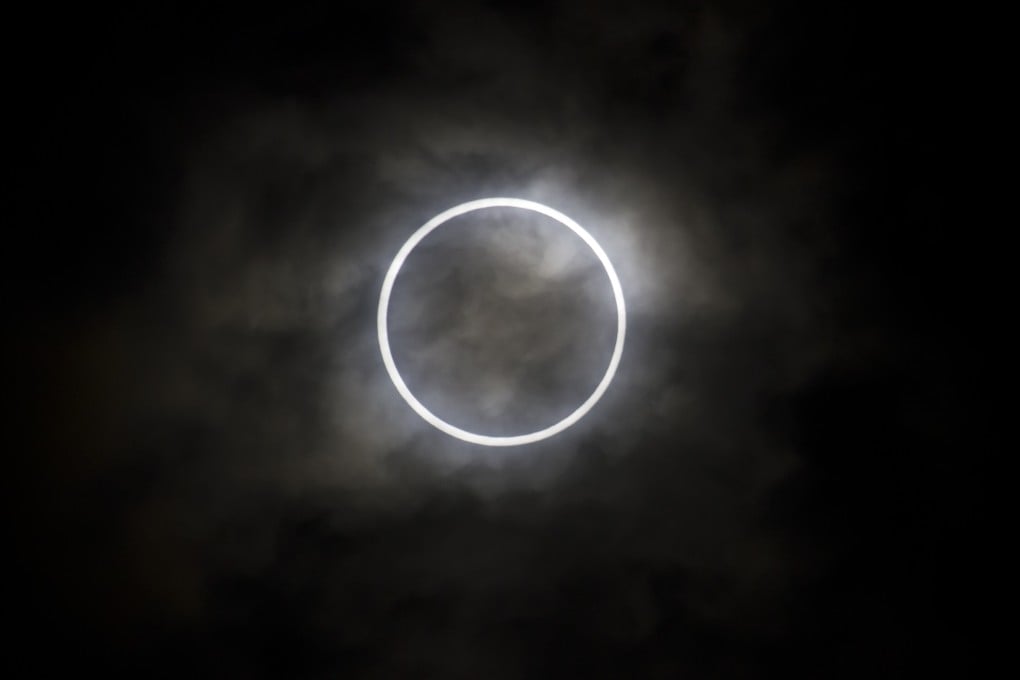Ring of fire solar eclipse visible in southern China this weekend; Hong Kong to witness partial solar eclipse
- Hong Kong will get to see an 86 per cent solar eclipse on Sunday while parts of China will get to witness the full ‘ring of fire’ effect
- Catch this one if you can – the next one of note from Hong Kong will not be until 2030

At 2.37pm in Hong Kong on Sunday, the moon will appear to take a bite out of the sun. By 4.08pm about 86 per cent of the sun will be blocked – as much as it will be for Hong Kong viewers – before the moon begins to move away. By 5.24pm, the celestial show will be over.
Although it isn’t that long since the last time a partial eclipse of the sun was visible from Hong Kong – a 34 per cent eclipse occurred on December 26 – it might be worth looking for it on Sunday as the next ones of note will not be until 2030, 2031 and 2032.
A solar eclipse of 86 per cent is reasonably large, but the spectacle will be outdone 300 miles (483km) away in Xiamen, a city in China’s Fujian province, where a fabulously slim “ring of fire” will be visible around the moon for one minute.
That’s because Xiamen is under the 27-mile-wide path that the moon’s shadow will follow, a path that stretches from central Africa to Guam in the Pacific Ocean, passing over countries including Ethiopia, Oman and India.
In China, the ring of fire will be visible across Tibet and from the cities of Yibin and Luzhou in Sichuan province; Ganzhou in Jiangxi province; Longyan and Xiamen in Fujian province; and both the Penghu islands and Chiayi City in Taiwan.
A “ring of fire” is a characteristic of an annular solar eclipse (annular meaning “ring-shaped”). Solar eclipses happen when the moon’s orbital path around the Earth occasionally intersects with the sun’s apparent path through our sky. When that happens during a new moon, it causes a solar eclipse.
